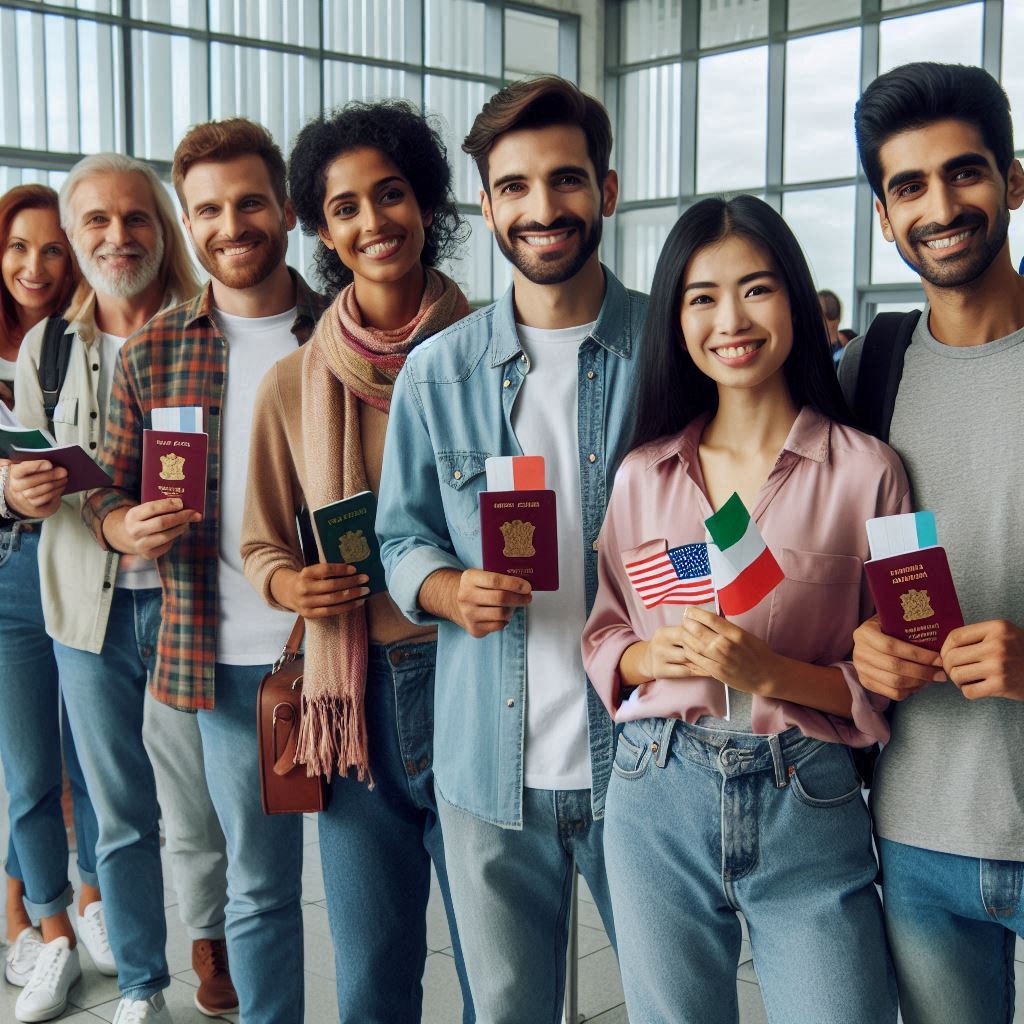South Korea provides a unique shelter for business immigrants since it is a country where innovation and tradition coexist together. This essay embarks on an exploratory voyage into the world of business immigration to South Korea. It delves into the variety of visa possibilities, investment perspectives, cultural nuances, and the outstanding returns awaiting those who dare to venture into the heart of the Korean Peninsula.

Visa options for business immigration
To meet the demands of various business immigrants, the country offers a variety of visas:
Creative and passionate (D-2) visa
The Creative and Passionate (D-2) Visa provides chances for artists, musicians, and other creative workers while nurturing the world’s artistic and creative skills.
Regional economic development (D-9) visa
The D-9 visa promotes company expansion in particular regions and offers a welcome road for entrepreneurs seeking to invest in regional development initiatives.
The global talent (D-7) visa
It gives seasoned experts a fast track to sharing their skills with the country’s businesses and fostering knowledge exchange.
Resident reporter (D-5) visa
This unique visa category, known as the Resident Reporter (D-5) Visa, is intended for foreign journalists and media professionals. It promotes cross-cultural journalism and fosters an international outlook.
Investment opportunities
The investment landscape in this country is vibrant and diverse:
Green growth
South Korea’s dedication to sustainability offers possibilities for initiatives involving renewable energy sources, environmental advancements, and eco-friendly companies.
K-pop and entertainment
Investing in the entertainment sector may be as enthralling as watching K-dramas, or riding the global wave of Hallyu, the Korean pop culture.
Medtech and biotech
Supported by top-notch research, the life sciences sector is booming and offers possibilities in healthcare, pharmaceuticals, and biotechnology.
Culinary ventures
From traditional delicacies to cutting-edge gourmet experiences, Korea’s rich culinary legacy offers a feast of investment prospects in the food and beverage industry.
How to move around the business landscape
Navigating the Korean business landscape effectively often requires understanding and embracing the concept of “Nunchi,” emphasizing harmony, and reading the nuances of business interactions.
Harmony in business
Grasping the dynamics of Korean business interactions, which emphasize harmony and respect, requires a grasp of the notion of “Nunchi,” or reading the room.
Diverse language palette
Although Korean is the official language, English is frequently used in corporate dealings, highlighting the country’s stance on the world.
Digital leverage
South Korea’s tech-savvy culture and top-notch IT infrastructure give companies that embrace digital transformation a competitive edge.
Regulatory resonance
Successfully managing the challenges of doing business in this country requires an understanding of the complicated regulatory environment there.
Challenges and considerations
When navigating business immigration to South Korea, adapting to cultural customs and building strong interpersonal relationships takes time but is essential for long-term success in the market.
Cultural adaptation
Long-term success depends on embracing Korean business practices and establishing trust, which may take time and patience.
Language dynamics
Even though English is widely used in business, knowing how to communicate cultural quirks can set you apart.
Regulation strictness
Comprehensive compliance is required due to South Korea’s stringent rules, particularly in sectors like finance and healthcare.
Visa extensions
This nation frequently grants visa extensions, making it simpler for business owners and investors to carry on their operations after the original time of their visas’ validity.
Startup ecosystem
The startup ecosystem in this country is booming, with government programs, incubators, and accelerators supporting start-up businesses.
Investment promotion zones
To entice international investment, this nation established special zones with investment incentives, tax advantages, and simplified regulatory processes.
Opportunities for education
South Korea is known for providing high-quality education and opportunities for international students to pursue advanced degrees and develop their talents.
Global connectivity
South Korea’s strategic location in Asia gives it an advantage over its neighbors, namely China and Japan when it comes to connecting those markets and expanding international commercial prospects.
Trade across borders
This nation has a large number of free trade agreements, which facilitate commerce across borders and benefit import and export companies.
Cultural exchanges
South Korea’s enthusiasm for cross-cultural cooperation, which fosters world peace, offers openings for enterprises.
You may also find these articles helpful
Living in South Korea – Expat life
